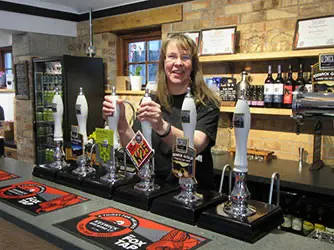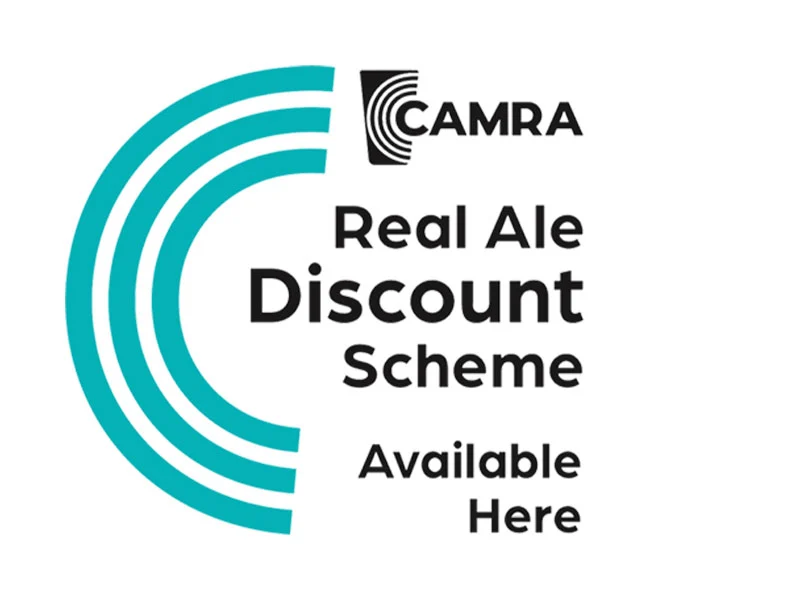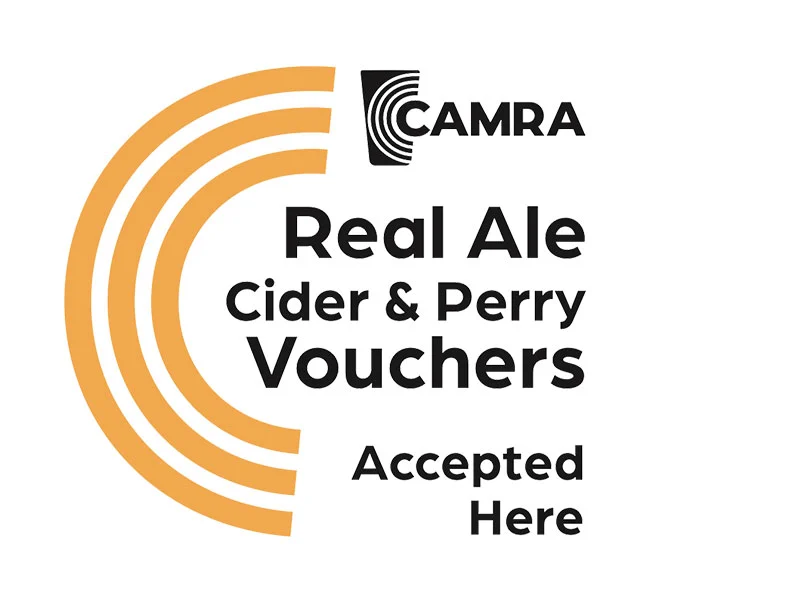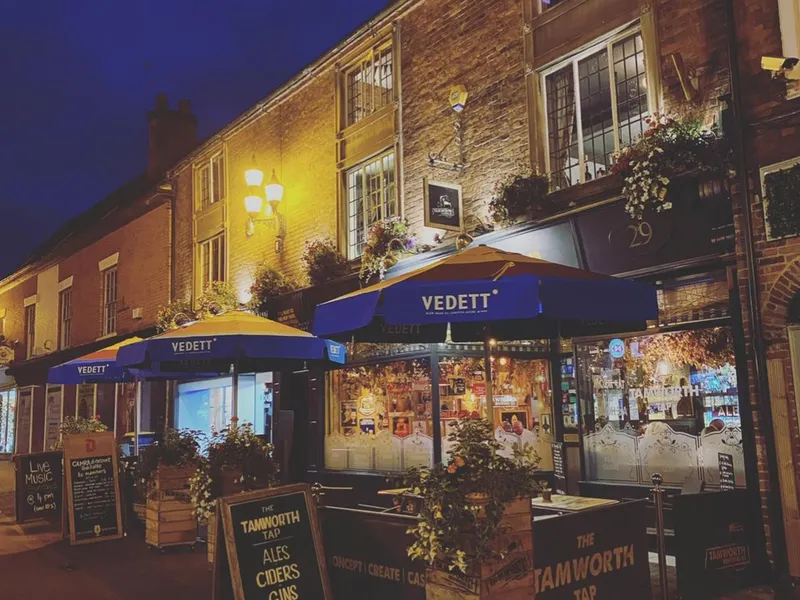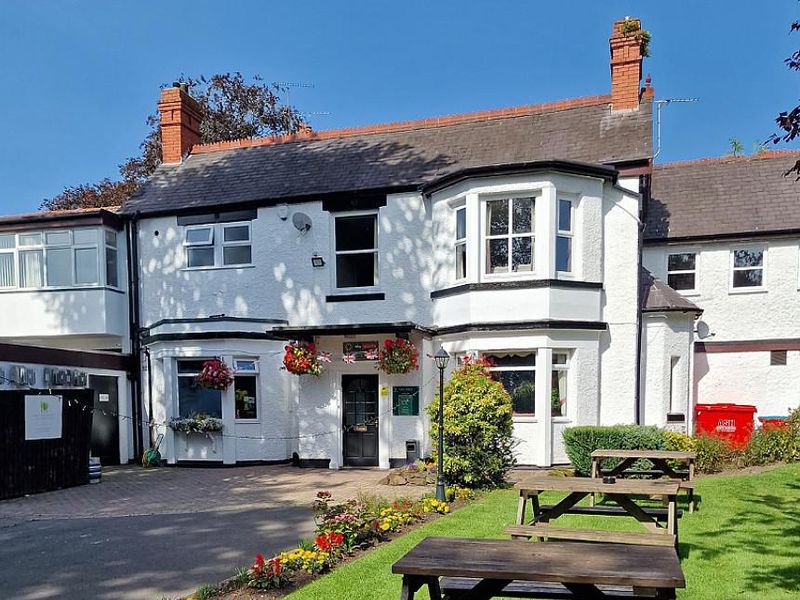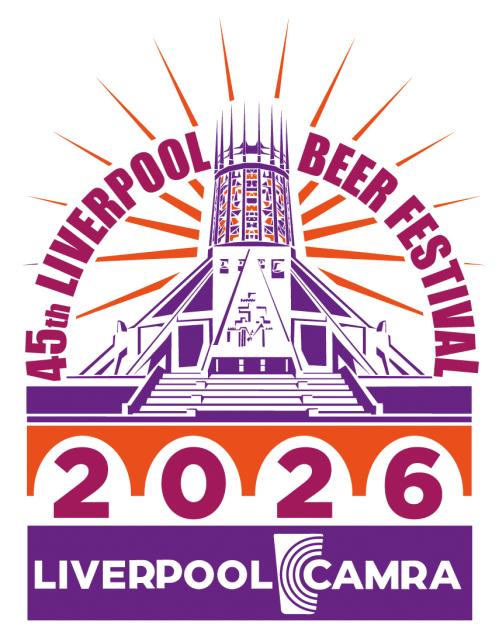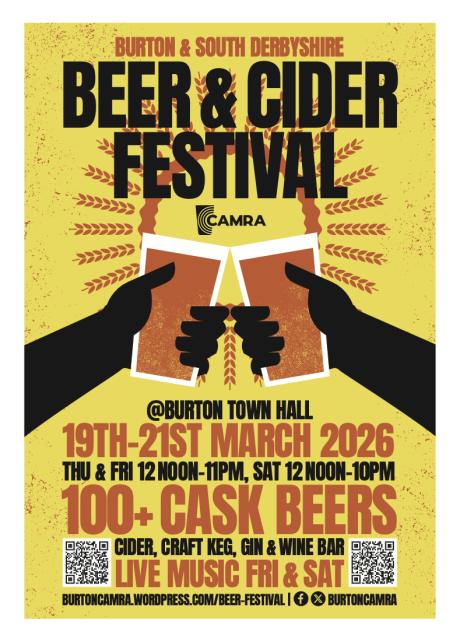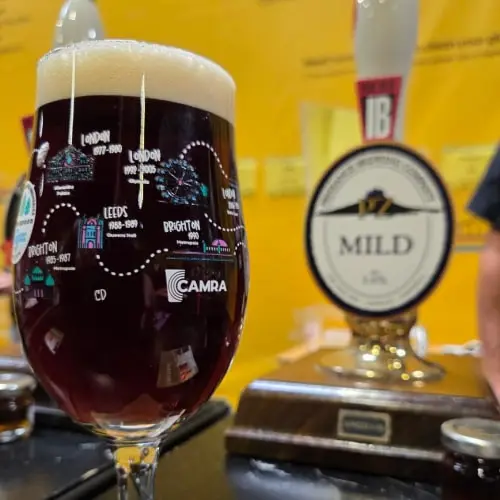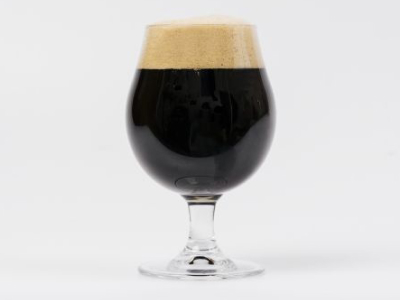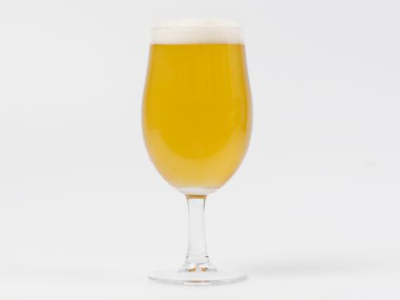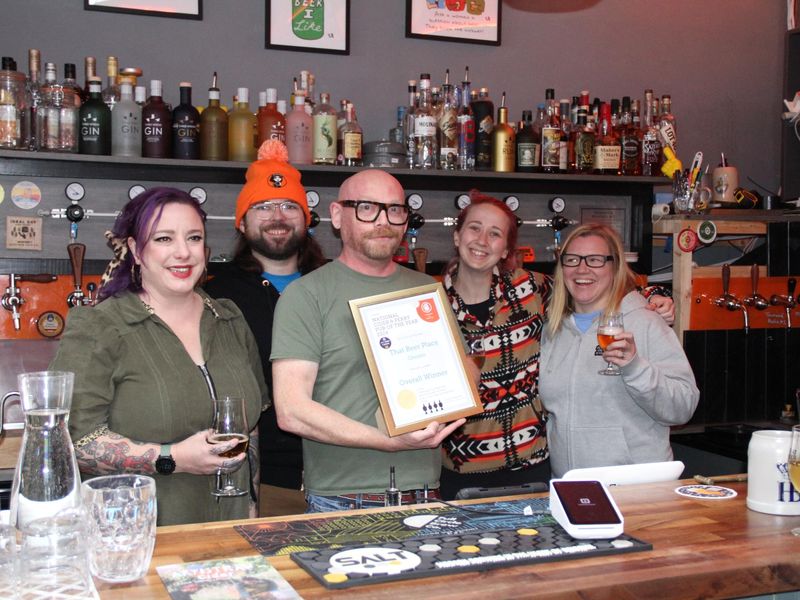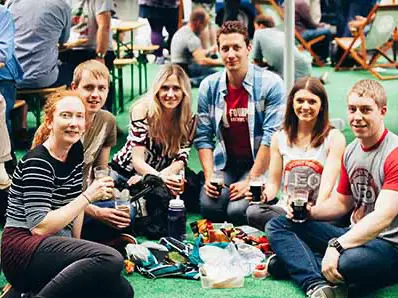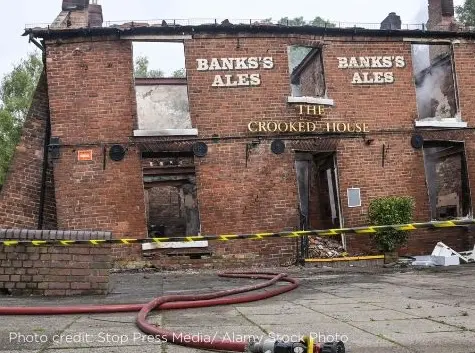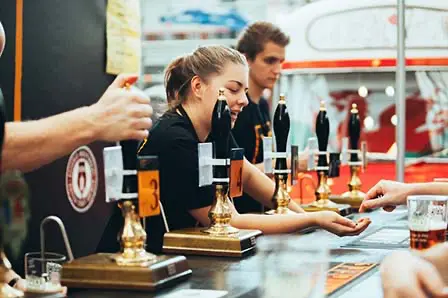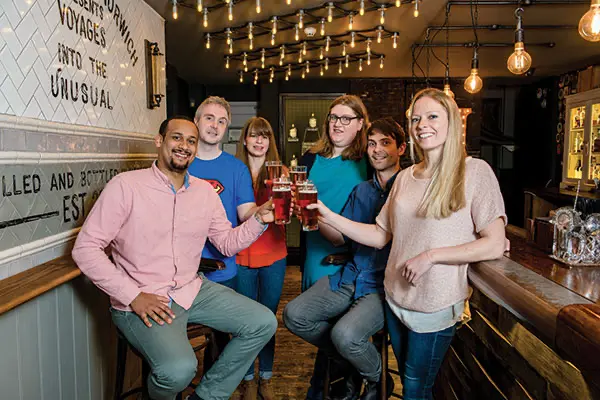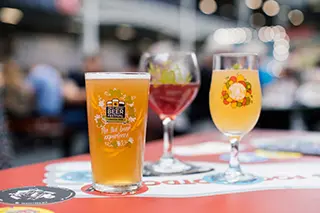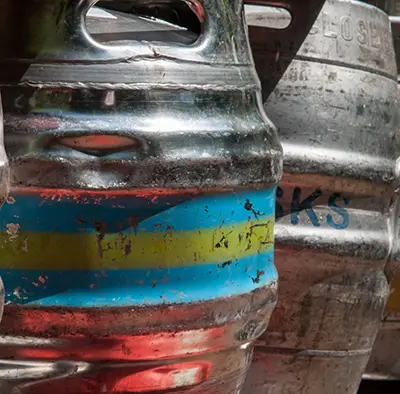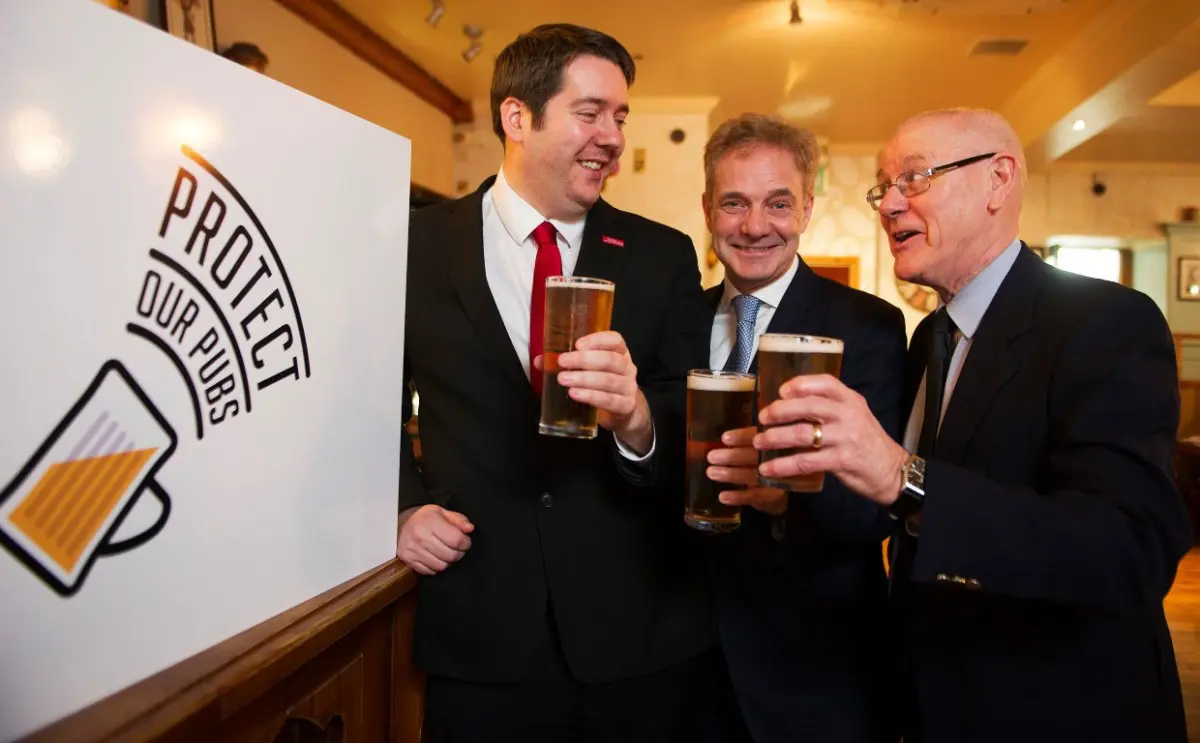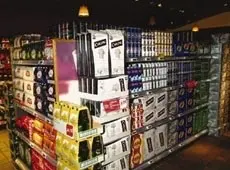Consumer rights and issues
Pub owning business and supply ties
Beer, Cider and Perry
We campaign for the availability and promotion of live beer, cider and perry. This includes campaigns to drive quality, raise awareness and understanding of such products with consumers and to secure changes to taxation systems to ensure continued growth of the sector.
Our full definitions of Real Ale, Cider and Perry are maintained by our Technical Advisory Group and can be found here.
All references to beer can be taken to mean beer, cider and perry.
Responsible drinking
We promote responsible drinking and recognise the harmful effects of high levels of alcohol consumption. We accept the need for controls on the supply of alcohol and for measures to educate consumers about alcohol consumption.
We support regulation of the content and presentation of alcohol advertising, and condemn irresponsible alcohol promotions, particularly those targeted at 18-25 year old drinkers.
While supporting regulation and efforts to tackle irresponsible drinking, we note the emergence of the anti-alcohol lobby, which seeks to demonise alcohol consumption in all forms and regardless of whether that consumption is responsible and in a supervised community setting.
We campaign to ensure that consumers are presented with a balanced view on the debate around alcohol harm and responsible drinking and, in particular, oppose the use by the media of images of beer, cider and pubs to illustrate stories relating to alcohol abuse and disorder.
Marketing of beer and cider
We believe that beers and ciders should not have offensive or discriminatory names, packaging or advertising materials. We do not support the sale of such products in pubs, clubs, or beer festivals.
Live Beer and dispense system
We believe in promoting cask-conditioned beer and improving its quality at the point of dispense.
Aside from the traditional Scottish air pressure system, we do not endorse any dispense system that involves applying extraneous CO2, nitrogen or any other gas directly to cask-conditioned beer.
We do not support dispense of a beer through a tight sparkler unless a beer has been brewed for dispense in that way. We have a neutral position on the use of cask breathers.
We recognise that live beer also exists in bottled, canned and ‘KeyKeg’ formats and campaign to increase consumer awareness of this.
Beer quality and range
We support variety and distinctiveness of beer styles. We embrace the preservation of traditional beer styles such as mild and encourage breweries to produce beers with a wide range of alcoholic strengths.
To ensure quality and sustainability, we encourage the shortest possible delivery chain from the point of origin to the point of sale of cask beer.
We support distinctive, traditional beers from other countries, regardless of whether they comply with our own definition of cask ale.
Taxation
We campaign for action to reduce the level of tax applied to beer. Beer in the UK is taxed at a level much higher than most other European brewing nations.
We advocate for a progressive system of taxation which benefits small brewers and cider makers, including the retention of the Small Breweries’ Relief scheme and the duty exemption for small cider producers.
We support the introduction of taxation measures in the UK to encourage consumption of beer in pubs, away from the off-trade. This includes:
- introducing a lower rate of duty on draught beer
- reducing VAT charged on beer and cider sold in the on-trade
- We oppose any move towards equalising tax on beer and wine or spirits, and support the principle that higher strength products should be taxed at a higher rate per unit of alcohol than lower strength products such as beer. The ABV threshold for the lower or zero rate of tax on beer should be raised from 2.8% to 3.5% to encourage production of lower strength beers.
Taxation should not be used as a major means of regulating alcohol consumption. We note that across EU countries there is no correlation between levels of taxation and consumption per head of the population.
We recognise that Minimum Unit Pricing has been introduced or is being introduced by devolved Governments. If the UK or a devolved Government chooses to implement Minimum Unit Pricing, then the unit price should be set at no more than 50 pence and the unit price should not rise by more than the Consumer Price Index in any year that it is raised. We do not believe that there is enough available research of the impact of Minimum Unit Pricing on the on-trade.
Pubs & Clubs
There are major social, environmental, cultural and health reasons for promoting responsible drinking in pubs and clubs, where the sale and consumption of alcohol is supervised in a community setting. CAMRA seeks to promote these benefits and lobby Government for positive action to support pubs and to increase the proportion of alcohol consumed in the on-trade.
We campaign equally for the promotion of pubs and clubs as we do for live beer, cider and perry. We campaign to save pubs and clubs regardless of whether they serve live beer or not.
We believe pubs and clubs are vital social institutions and that this status must be recognised by policy makers nationally and locally. We believe in the maintenance of a varied choice of pubs and clubs, and that, while those of special historic or architectural interest must be conserved, all should be celebrated for their role as institutions and essential character.
Our full Definition of a Pub can be found here.
Live beer range
While we encourage pubs and clubs to sell a range of beers of different styles and strengths, wherever possible, we do not encourage pubs to introduce or expand their range of live beers if, in doing so, the quality of beer served would suffer.
Free houses
We define a free house as a single licensed premises where the licensee is wholly and at all times free to purchase their stock of alcoholic beverages from whomsoever they choose without restriction, financial or otherwise.
Taxation
Pubs are subject to a large tax burden, which includes business rates, VAT, beer duty and other employment taxes. This pressure is further amplified for tied tenants who will be impacted by supply ties.
We recognise that pubs pay an unfair level of business rates which is disproportionate to the amount of total business turnover they account for, and does not take into consideration the community value of pubs. We support a full review of business rates systems across the UK to redress this imbalance and also account properly for equalisation of tax burdens between land-based and online business.
Funding should be provided to increase resources at the Valuation Office Agency to properly implement the current business rates guidance for pubs in England and ensure the effective working of the appeals system.
We believe that pubs and clubs should be eligible for business rate relief based on their value as community facilities.
Community ownership
We applaud communities which have successfully taken pubs at risk of closure into community ownership. Government should make appropriate legal, business and financial assistance available to support communities in this.
We support the moratorium on the sale of pubs listed as Assets of Community Value in England where a community has expressed a desire to buy that pub. We believe that this right should be extended so that owners cannot unreasonably reject a community bid.
Planning
We campaign for changes to the planning system to resist the unnecessary loss of community pubs. We call on all local and national decision makers to consider the community and social benefits of pubs when conducting their business.
Local Authority Plans should recognise pubs and clubs as essential social and community amenities and should include protective policies to guard against their loss, and facilitate diversification to provide essential services, especially where the pub or club is the last remaining in the local community.
We believe that planning law and planning policy should require all new large scale developments to contain at least one pub and one shop.
We support the Agent of Change principle and the writing of it into all appropriate planning legislation and planning policy.
Demolition, change of use, and alterations to pubs should always be subject to planning permission and the local community given the opportunity to comment on the proposals. We campaign for devolved Governments to introduce the same level of protection in planning law that pubs in England have.
We believe that all applications for the changes of pub names should be subject to planning permission.
Licensing
We support changes to the licensing system to reinforce the role of pubs as community facilities that supervise the responsible consumption of alcohol. This should be aimed at avoiding excessive consumption and seek to increase the proportion of alcohol that is consumed in a controlled environment.
Pubs should not be de-licensed until they have been offered for sale with licence for a reasonable period and at a reasonable price.
We believe accompanied children should be allowed in pubs and clubs provided suitable facilities are available. There should be no requirement in law that children should have to take a meal to use the premises, or to leave by a given time before the pub or club closes. The emphasis should be on the publican's decision whether to admit children, and the responsible adult's judgement whether the pub is suitable for the child.
Licensees should be free to open any hours that they choose. Licensing authorities acting on complaints should have powers to control the opening hours of premises causing proven public nuisance or disorder.
We oppose clustering late-night licences aimed at young people: instead the aim should be to spread late licences across all types of public houses in all parts of the licensing area. We campaign against the introduction of Late Night Levies by licensing authorities.
Consumer rights and issues
CAMRA campaigns for the rights of beer and cider drinkers and pub and club goers and believes that the industry should not seek to mislead consumers whether on price, provenance, ingredients or dispense.
Measures
We support the retention of imperial pint measures and seek the introduction of legislation to define a pint of beer as 100% liquid. There should be a clear indication at the point of sale as to the measures of beer available to purchase.
Ingredient labelling
Consumers of beer, cider and perry should be able to make their own, informed choices when purchasing alcohol. To this end, we support clear labelling or point of sale information that shows:
- the ABV of the product
- all ingredients and additives (including allergen information and information for people who have restricted diets)
- whether the product contains genetically modified ingredients
- if beer is unfined
- if the beer is brewed to be cloudy or hazy in appearance
- if cider is produced from concentrate and if it is unpasteurised
Provenance
We oppose any attempt to mislead consumers as to the origin of the beer, cider or perry that is offered for sale. This includes:
- point of sale material stating or implying that the beer is brewed in one place, when it is actually brewed in another, or made by one company when it is made by another. All draught beers should indicate the brewery origin and brand ownership at the point of dispense, and all bottled or canned beers should show these on their labels.
- selling different beers under the same trade name or the same beer using different trade names misleading promotion of global or national brewers' beers as if they came from small independent brewers
- advertising beers as 'house brands' when not produced by or exclusively for the pub
- selling cider or perry under different makers' names and/or giving the impression that the cider or perry is produced by a separate independent producer
Dispense
Beer, cider and perry drinkers should be fully informed at the point of dispense. We condemn dispense practices that seek to mislead the consumer, including:
- selling brewery-conditioned beer and non-traditional cider through handpumps
- dispensing beer kept using a cask breather or through a return tray/'Autovac' system without point of sale material to inform the consumer
- returning waste beer to the cask to be served again
- displaying a pumpclip facing forward on the bar when the beer is not available for purchase, unless clearly labelled as not ready for sale yet
Pricing
To avoid the possibility of misleading omission, price lists should be clearly displayed at the point of sale and should indicate any disproportionate charges for half pints, which should be charged at as close to half the price of a pint of the same product as possible.
Licensed premises
We believe that pubs and clubs should be as accessible as possible to all sections of society. Where practicable, every effort should be made by pubs and clubs to provide access to people with disabilities.
We believe that pubs and clubs should be welcoming to all sections of society. We do not support pubs or clubs that restrict entry to licensed premises on discriminatory grounds or display names, signs or objects that are offensive to a consumer due to their discriminatory nature.
Pub opening hours should be clearly displayed outside the venue, and pubs should not operate a system where entry can only be made on payment of an entrance fee.
Sustainability
We recognise that consumers are concerned about the environmental impact of their choices and consumption habits.
We campaign to promote drinking of locally produced cask beer and cider in licensed premises as the more environmentally conscious and sustainable choice for consumers.
We will encourage, promote and seek support for carbon neutral and carbon negative practices and initiatives by producers and retailers of beer, cider and perry.
We will ensure where possible that consumers, producers and retailers of beer, cider and perry act in the best interests of the environment.
We condemn the practice of unsubstantiated environmental claims ('greenwashing') by producers and retailers of beer or cider, as it is dishonest and misleading to consumers trying to make informed choices.
Breweries
CAMRA supports breweries that produce live beer regardless of size, encouraging activities in line with our policies. We recognise the contribution of regional and family brewers to preserving the availability of live beer as we know it today.
Mergers and takeovers
We oppose all takeovers which result in brewery closures and reductions in consumer choice, and the practice of brewery takeovers for the sole purpose of acquiring a brand name. Takeovers and mergers should have clear and demonstrable benefits to the consumer.
Competition authorities should investigate all mergers and takeovers in the brewing industry and should, where necessary, impose conditions on deals, which should then be monitored to ensure such conditions are met.
We support the de-merging of cask breweries if companies are not able to commit fully to the production and promotion of live beers.
Taxation
We support the principle of a system of relief for small breweries, having campaigned for its introduction in 2002. There should be no reduction in the rate of relief provided to any small brewer and the scheme should be retained and the current threshold for claiming the relief increased to the 200,000HL limit currently allowed under EU law.
In the interests of consumers, brewers should seek to pass on savings from duty cuts down the supply chain. We oppose brewers imposing on consumers periodic price increases which are not linked to increased production or distribution costs and that work against wider campaigns for reductions in beer duty.
We support a levy on non-returnable bottles and cans, provided that there are no unacceptable negative consequences for the brewery as a result.
Business practices
We consider that the practice by brewers as seeking to position keg beers as live beers through marketing is misleading to consumers. This includes the practice of filtering beer, then reseeding it for sale as cask conditioned beer.
We also oppose the practice of breweries with financial advantage pressuring smaller brewers producing beers with similar names into changing the name of such beers where there is no likelihood of confusion.
We condemn any attempt by brewers to mislead consumers by applying CAMRA award status to their beers in a dispense format/package for which the award was not given.
We operate a labelling at point of sale scheme for naturally conditioned beers in KeyKeg and other similar containers, which brewers are encouraged to take part in to allow consumers to identify such live beers.
Pub owning business and supply ties
CAMRA believes in fair and lawful dealing between pub owning businesses and their tenants, including a fair rent and freedom from the imposition of restrictive supply ties which impact upon the viability of the business and restrict consumer choice. We believe that pubs should be run by competent, motivated publicans preferably with a personal stake in the business.
Leased pubs
We do not oppose the principle of leased pubs but condemn unfair treatment of tenants by pub owning businesses, including but not limited to the eviction of tenants who will not take on leases with unfair terms.
Statutory Pubs Code and Adjudicator
We support the system of a statutory Pubs Code and Adjudicator to govern the relationship between large pub companies and their tenants. We campaign for the introduction of such legislation in Scotland as is already in place in England and Wales.
We believe that pub owning businesses should provide each tied tenant with a genuine option to become free of tie – known within the Pubs Code as the Market Rent Only option. Market Rent Only agreements should be negotiated through a straightforward process and offer an acceptable rent for the tenant.
Supply ties
Supply ties exist where a pub owning business imposes stocking requirements of certain brands or products on a tenant and restricts the tenant’s ability to buy products outside of this tie. We support the ability for any tenant to stock a guest beer in the interests of consumer choice, regardless of any supply ties.
We believe that abusive supply ties are contrary to the interests of consumers, and that the most effective way to address these is through an expansion in the scope of the Market Rent Only option.
We believe that tied pubs should not be forced to pay more for their choice of draught beer, cider and perry than they would if they bought it directly from the producer.
We believe that tied pubs should not be forced to pay significantly more for their choice of bottled or canned beer, cider or perry than they would if they bought it directly from the producer.
Pub owning businesses that sign long term supply agreements with a particular brewer should be considered as tied to that brewer, and the brewer should also be considered as a pub owning business.
No pub owning business should have the right to impose on a tenant supply ties relating to any product which it does not manufacture.
We condemn the practice of multinational drinks companies working with pub owning businesses or otherwise to attempt to prevent pubs from stocking live beers or locally brewed beers in favour of mass-produced brands.
Pub operating models
We note the development of franchise and retail agreements by pub owning businesses subsequent to the introduction of the statutory Pubs Code and Adjudicator in England and Wales.
We oppose the mass conversion by pub owning businesses of tenanted pubs to managed models.
Other issues
We believe that any pub being sold by a company or individual should first be offered to the licensee before being advertised on the wider market as a going concern.
We oppose the use of restrictive covenants, by pub owning business and regional brewers alike, to prevent pubs remaining pubs once sold, and seek legislation to end this practice.
The off-trade
CAMRA recognises that cask ales are sold through the off-trade in bottled and canned formats, and these increase consumer choice for home consumption.
However, the off-trade enjoys much lower levels of taxation and regulation than the on-trade and we believe that cheap alcohol prices in supermarkets are one reason for a decline in pub-going.
Off-trade sales and pricing
We maintain that the supervision over the sale of alcohol in the off-trade, as opposed to in pubs, is often inadequate.
The use of alcohol as a loss leader in the off-trade is anti-competitive and needs to be addressed. We support action to prevent the sale of alcohol as a loss leader. The off-trade should be required to follow a code of conduct on advertising and pricing, similar to that followed by the on-trade.
